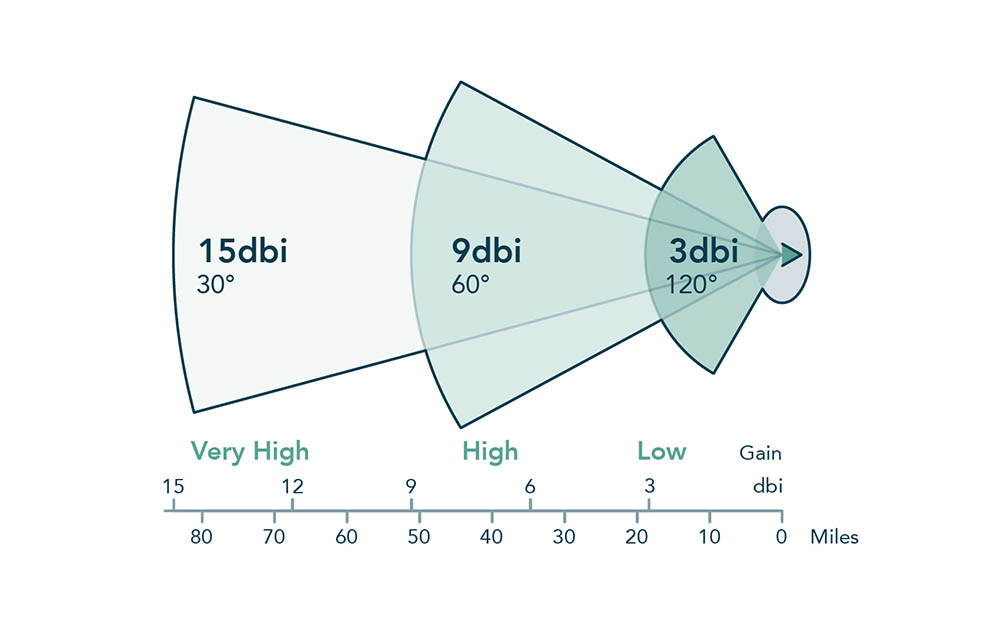DBi and dBd are units of power gain, both are relative values, but the reference is not the same. The reference reference for dBi is an omnidirectional antenna; the reference reference for dBd is a dipole.
It is generally believed that dBi and dBd represent the same gain, and the value expressed in dBi is 2.15 larger than the value expressed in dBd. (ie dBi=dBd+2.15). G(dBi)=10lgGi G(dBd)=10lgGd
DBm is a value that evaluates the absolute value of power, and the calculation formula is: 10lgP (power value/1mw).

1. Db to dbi calculator
1.1 If the transmit power P is 1mw, it is 0dBm after converting to dBm.
1.2 For 40W power, the converted value in dBm should be:
10lg(40W/1mw)=10lg(40000)=10lg4+10lg10+10lg1000=46dBm.
1.3 For an antenna with a gain of 16dBd, when its gain is converted into dBi, it is 18.15dBi (generally ignoring the decimal place, it is 18dBi).
1.4 0dBd=2.15dBi.
1.5 GSM900 antenna gain can be 13dBd (15dBi), GSM1800 antenna gain can be 15dBd (17dBi).
2. Db to dbi calculator extended information:
2.1 Take power as an example:
Signal power is X = 100000W = 10^5
The reference power is Y=1W
The value of dB: Lx(dB) = 10lg(10^5W/1W) dB= 10lg(10^5) dB= 50 dB